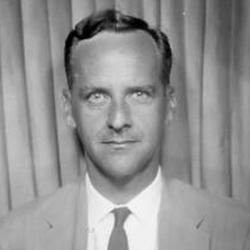William P. Creger
William P. Creger was a prominent American physician and hematologist known for his contributions to the field of hematology and internal medicine. He was a professor at Stanford University School of Medicine and made significant advancements in the understanding and treatment of blood disorders.
Early Life and Education[edit | edit source]
William P. Creger was born in San Francisco, California. He pursued his undergraduate studies at Stanford University, where he developed an interest in medicine. He went on to earn his medical degree from the Stanford University School of Medicine.
Career[edit | edit source]
After completing his medical degree, Creger joined the faculty at the Stanford University School of Medicine. He quickly rose through the ranks, becoming a full professor and later serving as the head of the Division of Hematology. His research focused on various blood disorders, including anemia, leukemia, and hemophilia.
Creger was also involved in clinical practice, where he was known for his compassionate care and dedication to his patients. He played a key role in the development of new treatments and therapies for hematological conditions.
Contributions to Hematology[edit | edit source]
William P. Creger made several notable contributions to the field of hematology. His research on the pathophysiology of blood disorders helped to improve the understanding of these conditions. He was also involved in the development of new diagnostic techniques and treatments, which have had a lasting impact on patient care.
Awards and Honors[edit | edit source]
Throughout his career, Creger received numerous awards and honors for his contributions to medicine. He was a member of several professional organizations, including the American Society of Hematology and the American College of Physicians.
Personal Life[edit | edit source]
William P. Creger was married and had children. He was known for his dedication to his family and his community. In addition to his medical work, he was involved in various charitable activities and organizations.
Legacy[edit | edit source]
William P. Creger's work has had a lasting impact on the field of hematology. His research and clinical contributions have improved the lives of countless patients with blood disorders. He is remembered as a pioneer in his field and a compassionate physician.
See Also[edit | edit source]
References[edit | edit source]
External Links[edit | edit source]
Template:Stanford University School of Medicine
Search WikiMD
Ad.Tired of being Overweight? Try W8MD's physician weight loss program.
Semaglutide (Ozempic / Wegovy and Tirzepatide (Mounjaro / Zepbound) available.
Advertise on WikiMD
|
WikiMD's Wellness Encyclopedia |
| Let Food Be Thy Medicine Medicine Thy Food - Hippocrates |
Translate this page: - East Asian
中文,
日本,
한국어,
South Asian
हिन्दी,
தமிழ்,
తెలుగు,
Urdu,
ಕನ್ನಡ,
Southeast Asian
Indonesian,
Vietnamese,
Thai,
မြန်မာဘာသာ,
বাংলা
European
español,
Deutsch,
français,
Greek,
português do Brasil,
polski,
română,
русский,
Nederlands,
norsk,
svenska,
suomi,
Italian
Middle Eastern & African
عربى,
Turkish,
Persian,
Hebrew,
Afrikaans,
isiZulu,
Kiswahili,
Other
Bulgarian,
Hungarian,
Czech,
Swedish,
മലയാളം,
मराठी,
ਪੰਜਾਬੀ,
ગુજરાતી,
Portuguese,
Ukrainian
Medical Disclaimer: WikiMD is not a substitute for professional medical advice. The information on WikiMD is provided as an information resource only, may be incorrect, outdated or misleading, and is not to be used or relied on for any diagnostic or treatment purposes. Please consult your health care provider before making any healthcare decisions or for guidance about a specific medical condition. WikiMD expressly disclaims responsibility, and shall have no liability, for any damages, loss, injury, or liability whatsoever suffered as a result of your reliance on the information contained in this site. By visiting this site you agree to the foregoing terms and conditions, which may from time to time be changed or supplemented by WikiMD. If you do not agree to the foregoing terms and conditions, you should not enter or use this site. See full disclaimer.
Credits:Most images are courtesy of Wikimedia commons, and templates, categories Wikipedia, licensed under CC BY SA or similar.
Contributors: Prab R. Tumpati, MD

